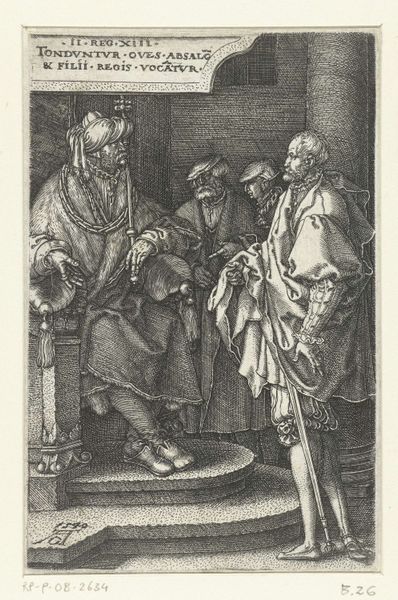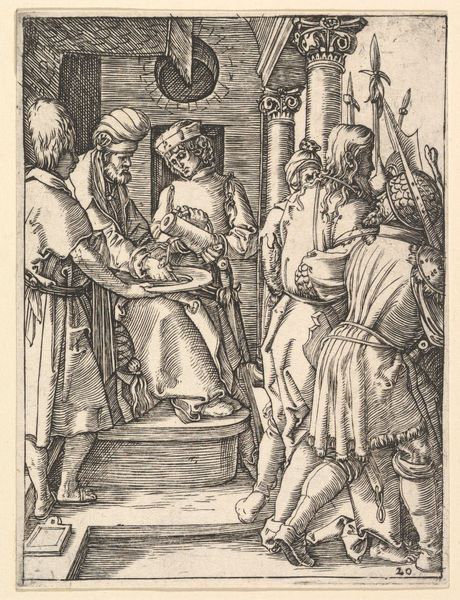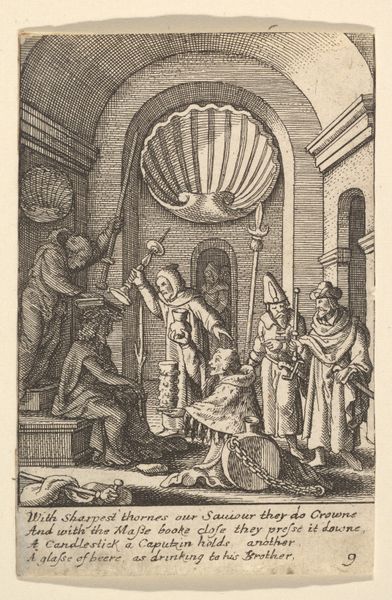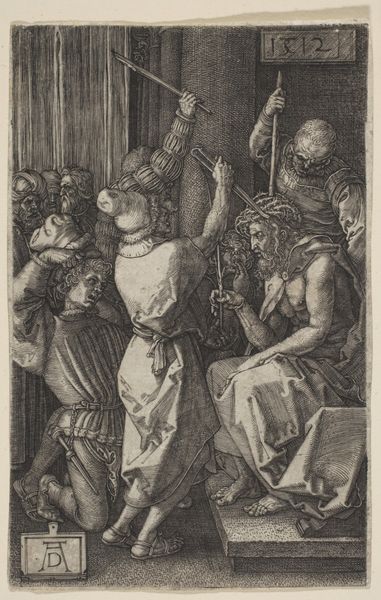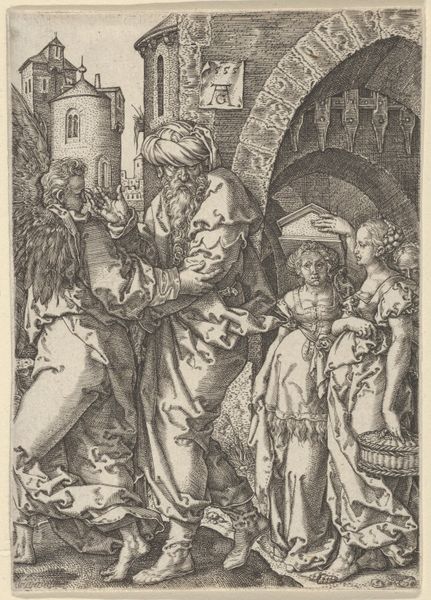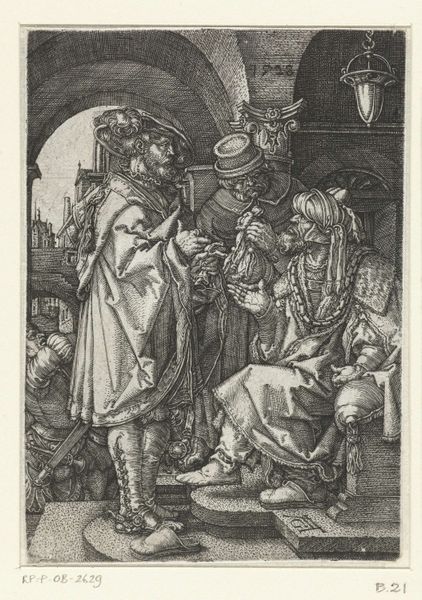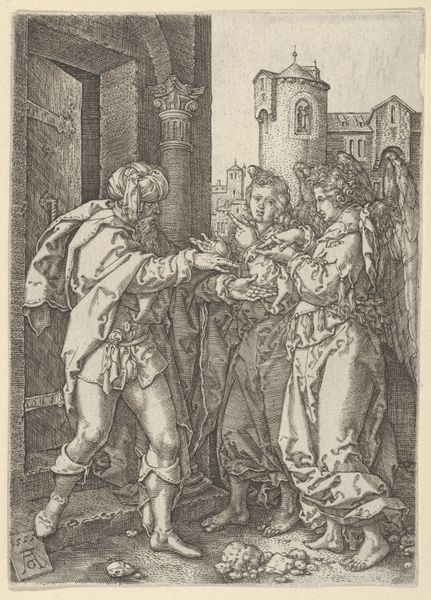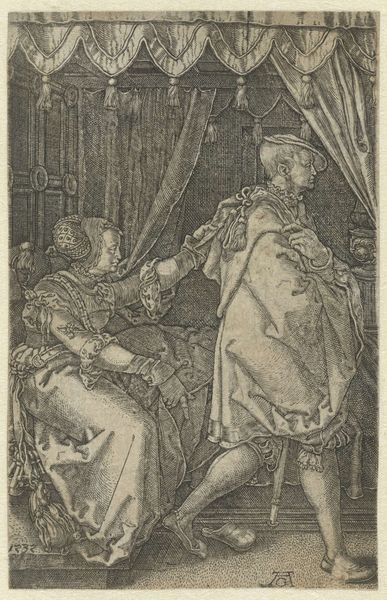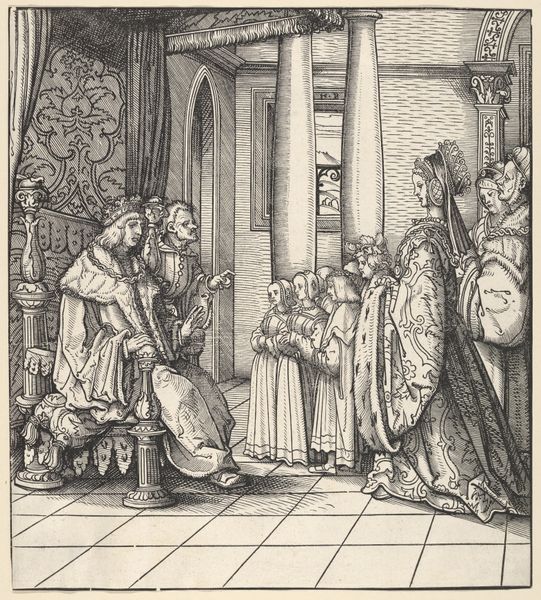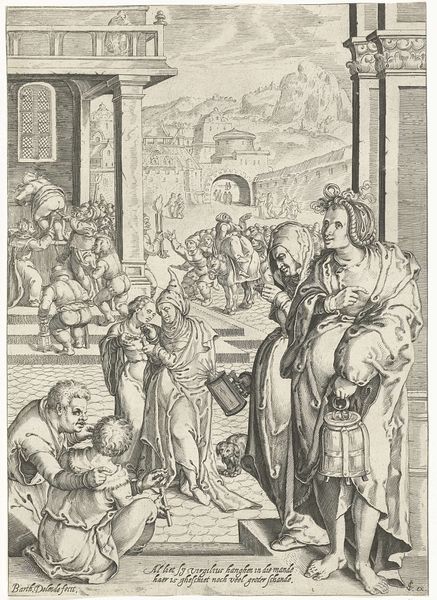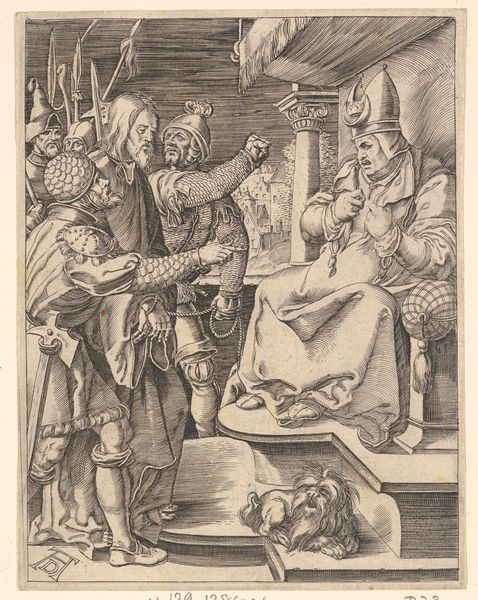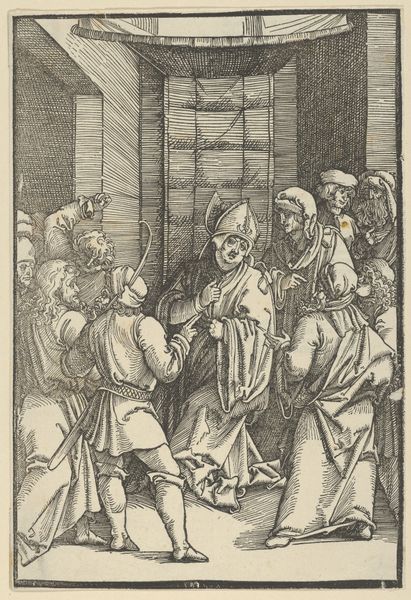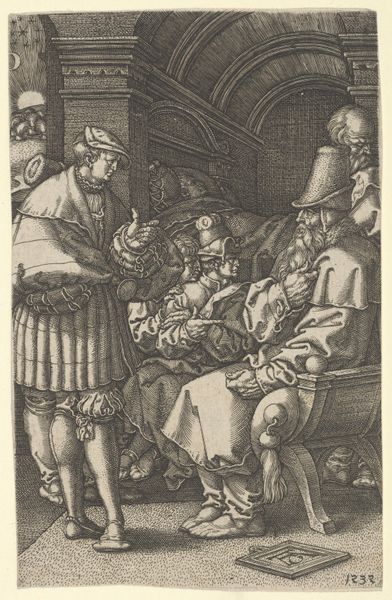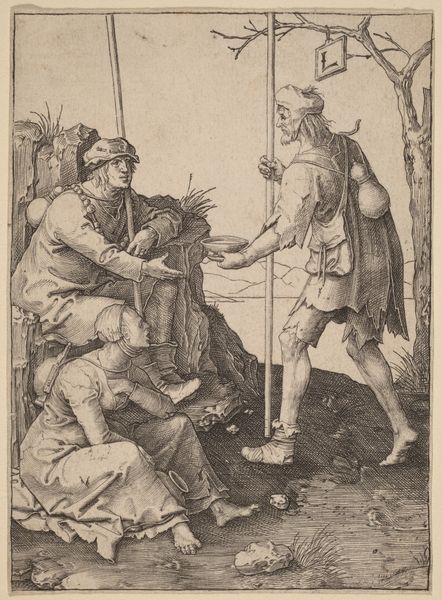
Potiphar's Wife Accusing Joseph, from The Story of Joseph 1532
0:00
0:00
drawing, print, engraving
#
drawing
#
narrative-art
# print
#
figuration
#
men
#
history-painting
#
northern-renaissance
#
engraving
Dimensions: Sheet: 4 11/16 × 3 1/16 in. (11.9 × 7.7 cm)
Copyright: Public Domain
Curator: Look at the tension in this print—Potiphar's Wife Accusing Joseph—created in 1532 by Heinrich Aldegrever. The scene pulses with accusation and mistrust, even across centuries. Editor: It's stark, isn’t it? That high contrast, so characteristic of engravings, really intensifies the drama. The density of the cross-hatching also communicates the unease here. Curator: Precisely! Consider the source material—a tale of power and betrayal. In visual language, consider the raised hands. It’s interesting how universally the raised hand in this piece means guilt. Think about how many figures, how many deities in the visual imagination invoke this gesture! Here, Aldegrever renders it simultaneously threatening and theatrical, with a possible element of self-preservation at its heart. Editor: That’s a provocative point. It makes me wonder about the figures behind Potiphar's wife. Are they supporting her claim, or just witnessing this spectacle? How much are they actively complicit in silencing Joseph, driven by social pressure? And look at Potiphar, seated; his stillness in direct contrast to his wife's theatrics—what does this say about male authority at that time? The gaze, after all, is what truly constructs the accusation in this moment. Curator: Ah, but Potiphar’s pose and garments evoke specific images of sovereignty from that time; he is every royal or holy man with staff, chair, garments. Aldegrever creates the perfect backdrop for a meditation on false accusation and authority. But it is also a portrait of power dynamics across generations, is it not? Editor: I think that the image powerfully encapsulates how quickly structures of authority and patriarchal narratives of male weakness play out—or do not. Even though it seems to depict a biblical story, its focus on gendered accusations resonates across time. Curator: A tale as relevant today as it was then. Editor: Ultimately, yes. Aldegrever leaves us with questions far beyond the surface narrative.
Comments
No comments
Be the first to comment and join the conversation on the ultimate creative platform.
